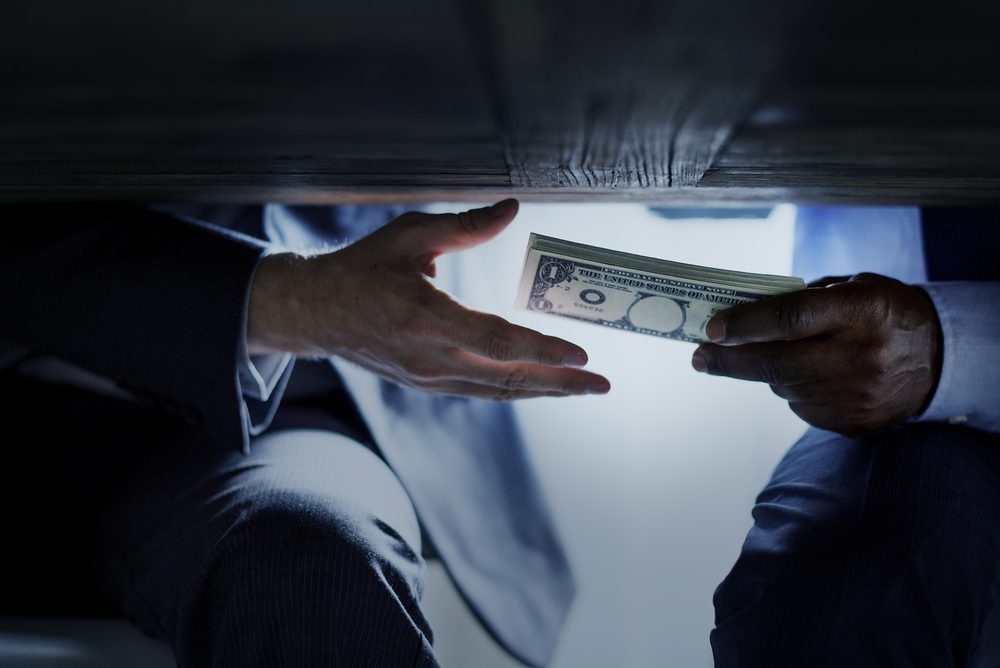
The corruption scandal plaguing the EU Parliament has proven more extensive than assumed. After discovering Qatar sought to use bribery to steer the institution, Belgian investigators are looking askance at another nation that might have tried to do the same: Morocco.
According to court documents that De Morgen was able to consult, former MEP Pier Antonio Panzeri (S&D), a key figure in the elaborate scheme, was advising active MEPs within the S&D (Progressive Alliance of Socialists and Democrats) on policy that would favor not only Qatar but Morocco as well.
The Moroccan ambassador in Poland, the documents claim, is presumed to have made the arrangements. As a reward for Panzeri’s and his associates’ efforts, payment—whether by cash or by other material goods—was made.
The European Parliament has drawn unwanted attention to itself since Belgian investigators conducted searches last weekend as part of the anti-corruption investigation.
Belgian courts strongly suspect that Qatar has been trying to influence decision-making by offering large sums of money and lavish gifts to individuals holding strategically important positions within the EU Parliament. This becomes extra controversial because of the country’s poor record with respect to workers’ rights, particularly regarding the dangerous conditions during the building of football stadiums ahead of the World Cup.
On Tuesday, December 13th, in his first remarks on the events of the past couple of days, Belgian Prime Minister Alexander De Croo said, somewhat accusatory: “Belgian justice is doing what, at first sight, the European Parliament has not done.” As he applauded the work of Belgian law enforcement, he noted that “the European Parliament has a lot of means to regulate itself,” but that apparently, “this is largely a system of auto-control based on voluntary efforts, which has clearly not been sufficient.”
The same day, in a repeat of Friday, police sealed off 10 more offices in the European Parliament’s Strasbourg headquarters—offices which are all linked to the individuals targeted in the Brussels raids. The one belonging to Mychelle Rieu, an official working on the Parliament’s subcommittee on human rights, was among them. After police seized some computer equipment, the office was unsealed.
In addition, the office of an assistant to Italian MEP Pietro Bartolo (who, like most of the suspects, also belongs to the S&D group), was sealed off.
At the time of writing, an estimated €1.5 million in cash has been seized during searches in Belgium and abroad. The largest amount, about €600,000, was found last Friday in the Brussels home of Panzeri.
Indeed, all roads seem to lead back to Panzeri. His 38-year-old daughter Silvia and 67-year-old wife Maria Colleoni were apparently aware of the bribery scheme. Transcripts of wiretapped phone calls between Colleoni and her husband show that they discussed what the pay-offs should be invested in.
Various Italian media report that Panzeri’s wife had already been comparing prices for a Christmas vacation. They were looking at ways to finance this as it would need to be to the tune of €100,000 “like [the one from] last year,” says a quote from the wiretaps.
Panzeri is currently being detained by Belgian authorities, while Panzeri’s wife and daughter are being held under house arrest in Italy.
Photographs released by federal police show that more cash has been seized from the father of the disgraced Greek MEP Eva Kaili—since fired from her job as one of the EU Parliament’s vice ministers—as well as from the Brussels home of Kaili and her partner Francesco Giorgi.
🔴 Document @lesoir @knack
— Louis Colart (@LouisColart) December 13, 2022
Scandale de corruption européen: voici l’argent saisi chez Panzeri et Kaili: au total plus d'un million et demi d'euros en cash https://t.co/Eqgf89bo1B pic.twitter.com/yA6ov6pFEQ
Marc Tarabella, the Belgian MEP whose house was searched on Saturday night, was suspended on Tuesday by his party, the Walloon Socialist Party (PS), for the entire duration of the judicial investigation.
Eva Kaili is currently being held at Saint-Gilles Prison and is due in court on Wednesday, December 14th. She has denied any wrongdoing. The Qatari government equally denies any involvement.
On Tuesday, December 12th, the EU Parliament’s president, a visibly shaken Roberta Metsola, addressed the MEPs. Describing the institution and European democracy itself as being “under attack” by “malign actors” linked to “autocratic third countries,” she stressed that their “malicious plans” failed. Vowing to “fight corruption” she announced the launch of an internal investigation.
I am in politics to fight corruption.
— Roberta Metsola (@EP_President) December 12, 2022
To stand up for Europe.
We will meet this test head on.
There will be no impunity.
There will be no sweeping under the carpet.
There will be no business as usual.@Europarl_EN stands against enemies of democracy wherever they come from. pic.twitter.com/60SW8TzV1K
Thus, a mood of deep suspicion has taken hold of the European Parliament. MEPs, along with other EU officials, can be expected to be scrutinized like never before. To be sure, personal histories will be unearthed and filed through—a thorough clean-up job in which the slightest hint of praise for Qatar is sure to be deemed suspect.
Yet the question remains if that same rigor will be applied to the myriad of legal ways other actors seek to influence those in power. Lobbyists from multinational corporations are a common sight around EU institutions, as they eagerly ply their trade. Indeed, some who work for the public’s interests find, as they exit the political stage, that a revolving door awaits, ready to vault them into the upper echelons of the even better-paid private sphere.
